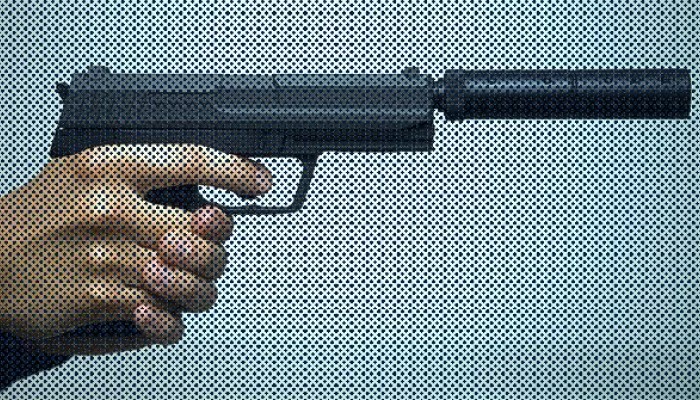Last week, the Supreme Court declined to review the convictions of Shane Cox and Jeremy Kettler, who were found guilty of violating federal restrictions on the possession and transfer of silencers and short-barrel rifles. Media coverage focused on a purely Second Amendment angle — whether silencers are protected by the right to keep and bear arms — overlooking another significant issue: the two men were convicted despite Kansas’s attempt to nullify federal firearms law through its Second Amendment Protection Act (SAPA). The total failure of the SAPA defense, as well as the devastating repercussions for Cox and Kettler, should serve as a warning to each state that has passed or is considering such a measure.
In 2013, Kansas enacted the law, which declared it “unlawful” for “the government of the United States . . . to enforce or attempt to enforce any act . . . of the government of the United States upon a firearm, a firearm accessory, or ammunition that is owned or manufactured . . . in the state of Kansas and that remains within [its] borders.” After reading the SAPA, Cox, who owns a military surplus store, decided to make a short-barreled rifle as well as manufacture and sell silencers without abiding by the registration requirements in the National Firearm Act (NFA). Cox was so sure the SAPA insulated him from the NFA that he displayed the SAPA’s text alongside the silencers in his store. Kettler purchased one of Cox’s silencers and, because of the SAPA, neglected to pay a tax required by the NFA. Federal prosecutors charged both men with felonies.
At trial, Cox and Kettler argued that they relied on the SAPA’s assertion that it overrode federal laws like the NFA. Unfortunately for the defendants, the federal judges who heard their case and subsequent appeal rejected that argument out-of-hand. After all, the Constitution provides that federal law is superior to state law, which means that Kansas cannot willynilly create defenses to federal crimes. Even if Kansas legislators believed that the NFA was somehow unconstitutional, federal judges, not state legislators, have the final say. In fact, the Supreme Court affirmed the constitutionality of the NFA taxing scheme in 1937 and reaffirmed that precedent in 2012. Finally, even though Cox and Kettler appear to be unwitting victims of an irresponsible and misleading state representation, that does not exempt them from the general principle that a mistaken understanding of federal law is no defense.
The irony of Kansas’s effort to affirm Second Amendment rights through a SAPA is that now Cox and Kettler are barred from lawfully possessing a firearm. Under a different federal law, both men are exposed to up to 10 years imprisonment if they possess a gun. To get out from under that prohibition, Cox and Kettler would need to be pardoned by the president. So far as Cox and Kettler are concerned, the SAPA is more aptly called the Second Amendment Surrender Act.
Kansas is not alone in passing misleading legislation in the name of the Second Amendment. Alaska, Arizona, Idaho, South Dakota, Tennessee, and Wyoming currently have a SAPA on the books. Missouri, North Dakota, and Texas introduced SAPA bills this year. The bills follow a similar pattern. For example, Missouri’s proposed SAPA boldly declares certain federal firearm laws to be “null and void and of no effect” within the state. Like the SAPA that failed to protect Cox and Kettler, it takes direct aim at federal firearm restrictions like those associated with sawed-off shotguns, machine guns, and silencers.
And it is not just state legislators who are misleading constituents about the enforceability of firearm regulations. Recently, a growing number of municipalities have passed ordinances empowering local sheriffs to declare state and federal gun laws unconstitutional and unenforceable in their jurisdicitions. These municipal ordinances could misguide citizens into the same trap as Cox and Kettler, at not just the federal level but the state level, as well.
It is no secret that showing support for gun rights can be politically useful in much of the country. But as Cox and Kettler’s case shows, SAPAs don’t actually protect anyone’s right to keep and bear arms, while exposing hapless gun owners to criminal prosecution. Elected officials should find a better way to express their gun-rights bona fides than risking the very same rights they claim to endorse.
(Image: jonathanparry)






